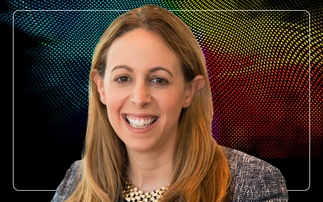What is driving the recent popularity of investment trusts?
In part, asset growth in the investment trust space is linked to a rise in interest in alternatives. The closed-ended nature of investment trusts makes them a natural home for illiquid or long-term investments.
Managers don't have to deal with inflows or outflows, so there's a pool of capital and you can take a very long-term view. Some of the growth has been income-focused partly because interest rates have been very low and people are looking for alternative sources of yield.
But assets have been growing in the equity space, too. I think this relates to the increasing recognition of the advantages the trust structure brings, evidenced by often superior outcomes relative to comparable open-ended funds.
How do you differentiate yourselves from other trusts?
First, we make full use of the advantages a trust structure provides, for example, we've got a very long history of investing into unlisted private equity markets. Some other trusts do that in the global growth space but not many.
It means F&C Investment Trust provides a one-stop shop for investors looking for a diversified global solution with access to listed and unlisted equity markets and therefore growth assets.
Second, we can use strategies and fund managers within BMO but also third-party managers to access opportunities - an unusual blend of internal and external.
Third, scale is also important. If we are talking to intermediaries like wealth managers, many of those wealth managers will not look at investment trusts below a certain size because they need liquidity. We can provide that liquidity.
The broader point is that when you make any investment you have to think about the appropriate investment horizon, particularly if you're dealing with illiquid underlying assets. Trusts trade on a daily basis and you get a ticker, but that doesn't mean there's always a lot of liquidity in the stock. Therefore the size of the trust is important.
What else do advisers and wealth managers need to keep in mind when investing in trusts this late in the cycle?
One obvious point concerns gearing, because trusts can borrow to invest. In rising markets, gearing tends to accentuate returns and if markets decline, it tends to exacerbate losses. The gearing levels of the trust have to be managed appropriately because if you're highly geared in a declining market it can also lead to breach of covenant in terms of lenders. That's clearly serious.
Also the trust share price is a function of supply and demand and may diverge from the underlying net asset value (NAV), generating a premium or a discount. In times of stress, you will not suffer gating, which you could in an open-ended fund, but you may only be able to deal at a price further from the NAV than you would like.
What is your own approach to gearing?
Our gearing levels are about 7% at the present time, or reasonably modest by historic standards. We can borrow up to 20% of net assets so we're at the lower end of the range.
The level of gearing is important but so is the spread of borrowings. If you invest in a portfolio of illiquid assets but have very short-term borrowings, you're mismatched on liquidity. The trust might not be able to get refinancing - a real issue, clearly.
So we've got a broad spread of maturities from short term - one to 12 months - to borrowings that extend out to about 40 years. That very diversified borrowing reduces our refinancing risk.
Click here to read more about investment trust trends in the latest edition of Investment Trust Quarterly - including Paul Niven's views on global equity markets and the value-versus-growth debate
Important Information
BMO Global Asset Management (F&C Investment Trust)
Capital is at risk. The value of an investment is dependent on the supply and demand for the trust's shares rather than its underlying assets. The value of the investment will not be the same as the value of the trust's underlying assets. Past performance should not be seen as an indication of future performance.
The views and opinions expressed in this article by the author do not necessarily represent those of BMO Global Asset Management.
This financial promotion is issued for marketing and information purposes only by BMO Global Asset Management in the UK.
F&C Investments Trust Plc is an investment trust and its Ordinary Shares are traded on the main market of the London Stock Exchange.
English language copies of the key information document (KID) can be obtained from BMO Global Asset Management, Exchange House, Primrose Street, London EC2A 2NY, telephone: Client Services on 0044 (0)20 7011 4444, email: [email protected] or electronically at www.bmogam.com. Please read before taking any investment decision.













